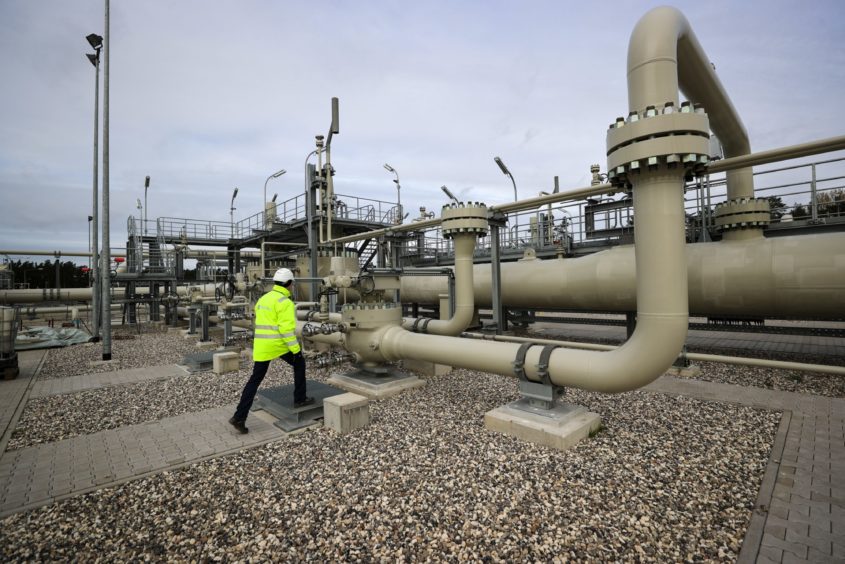
Germany opposes a ban on imports of Russian oil, gas and coal, even as it underlines the urgency to reduce reliance on Moscow for energy supplies.
As Western sanctions begin to bite and Kremlin forces intensify their campaign to take key Ukrainian cities, Germany and other European nations are bracing for the possibility that either Moscow blocks supplies or political pressure prompts a full energy embargo.
“I wouldn’t support an embargo on imports of fossil fuels from Russia,” Economy Minister Robert Habeck told reporters in Berlin Thursday after meeting with German industry officials. “I would even speak out against it, because we would threaten the social peace in the republic with that.”
Habeck, Germany’s vice chancellor who oversees energy policy, also warned that Europe’s biggest economy faces major repercussions from Russia’s invasion of Ukraine. He said the business executives he met with expressed support for the government’s handling of the crisis even though their companies may suffer from measures taken to retaliate against the Kremlin.
Fallout from Russian sanctions risks causing damage to German companies worth as much as 20 billion euros ($22 billion), Habeck said. While some of that would be covered with government guarantees, other companies would be left exposed.
To help those affected, the government will offer financial aid similar to the loan and guarantee programs set up to offset the impact of the coronavirus pandemic.
Habeck, a former co-leader of the Greens party, said Germany relies on Russia for 55% of gas imports, 50% of coal and 35% of oil. Over the short term, there are no prospects for a quick fix, but efforts are underway to reduce the country’s dependency on fossil fuels from Russia.
“We will and need to remain open for energy supplies from Russia,” Habeck said. “We need these supplies to maintain price stability and security of energy in Germany, but we’re working as intensively as possible on solutions.”
Recommended for you
